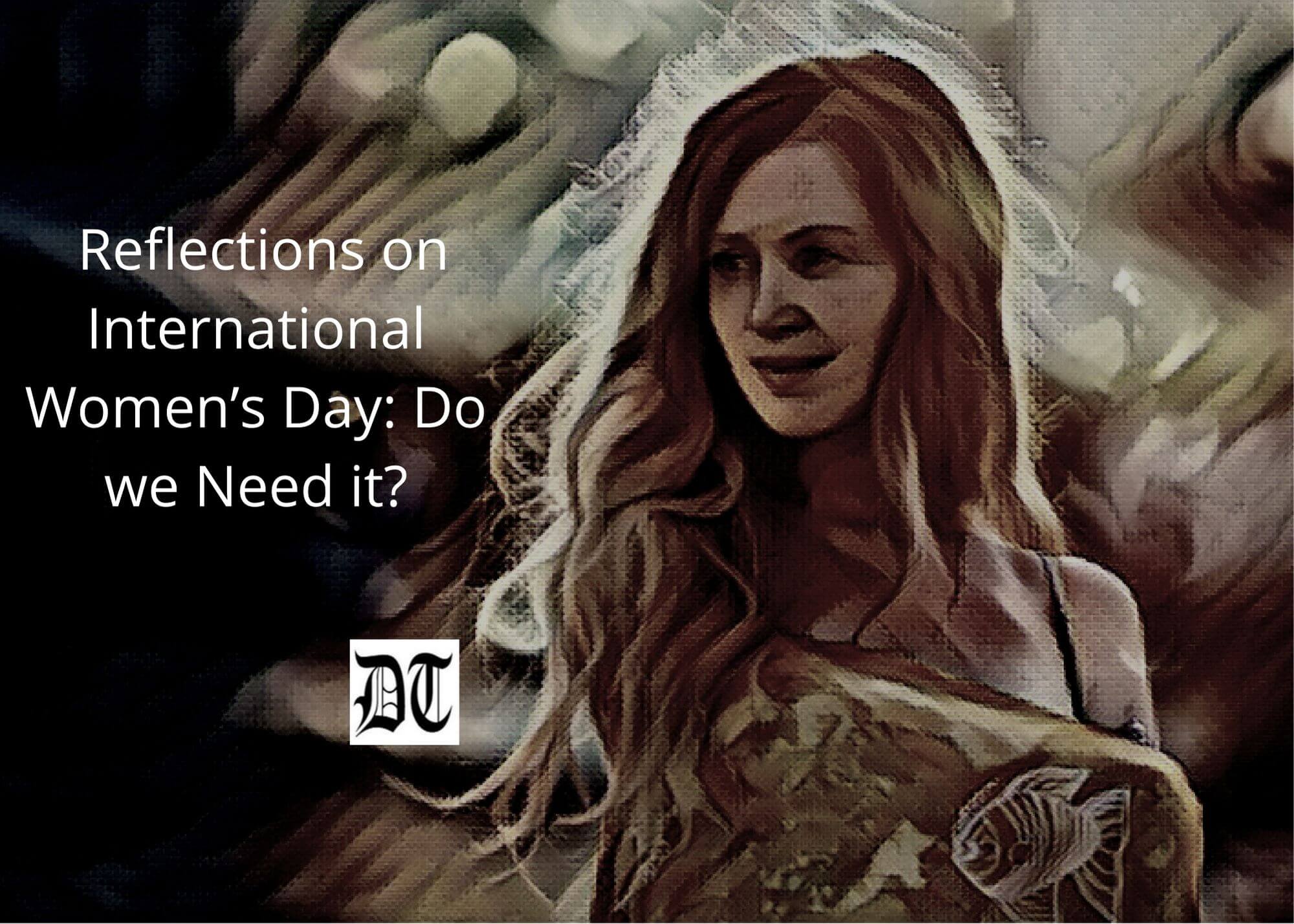Shormita rues that there is a lack of awareness about LGBTQIA+ Rights. She mentions the legal and literary sources for the marginalised community. An exclusive for Different Truths.
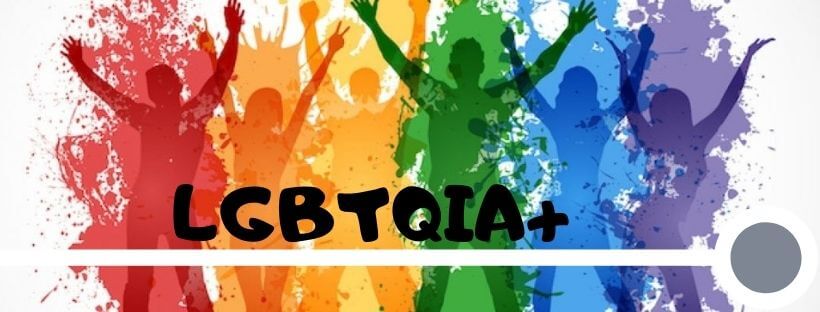
As rightly said by Mother Teresa, “Human rights are not a privilege conferred by the government. They are every human being’s entitlement by virtue of his humanity.”
Now the question arises why the people of the LGBTQIA+ community are not entitled to the basic rights of being a human? Human rights are entitled by virtue of being a human, regardless of sex, gender, nationality, religion, caste, creed, race, colour, or any other status. Every human being on this planet is equally entitled to have their human rights without any discrimination or inequality.
Now the question arises why the people of the LGBTQIA+ community are not entitled to the basic rights of being a human?
The human rights of the people of the LGBTQIA+ community vary from country to country or region. There are some countries that have strictly prohibited same-sex relations. However, in the Article 1, 2, 3, 5, 6, 7 and 16 of Universal Declaration of the Human Rights (UDHR), it states, the right to freedom from discrimination, equality, liberty, life, personal security, freedom from torture, equality before the law, recognition as an individual, right to get marry and have a family. Still, the stereotypical society continues to discriminate against human beings for their choice of sexual orientation.
Remarkably in 2011, the United Nations Human Rights Council (UNHRC) passed its first declaration by giving recognition to the LGBTQIA+ rights.
Also, most of the Western countries have enacted laws to safeguard the rights of the people belonging to the LGBTQIA+ community. Remarkably in 2011, the United Nations Human Rights Council (UNHRC) passed its first declaration by giving recognition to the LGBTQIA+ rights. Likewise, the United Nations High Commissioner for Human Rights issued a report, on which it documents the infringement of the rights of LGBTQIA+ individuals. which includes criminalisation of homosexual activities, hate crimes, and discrimination.
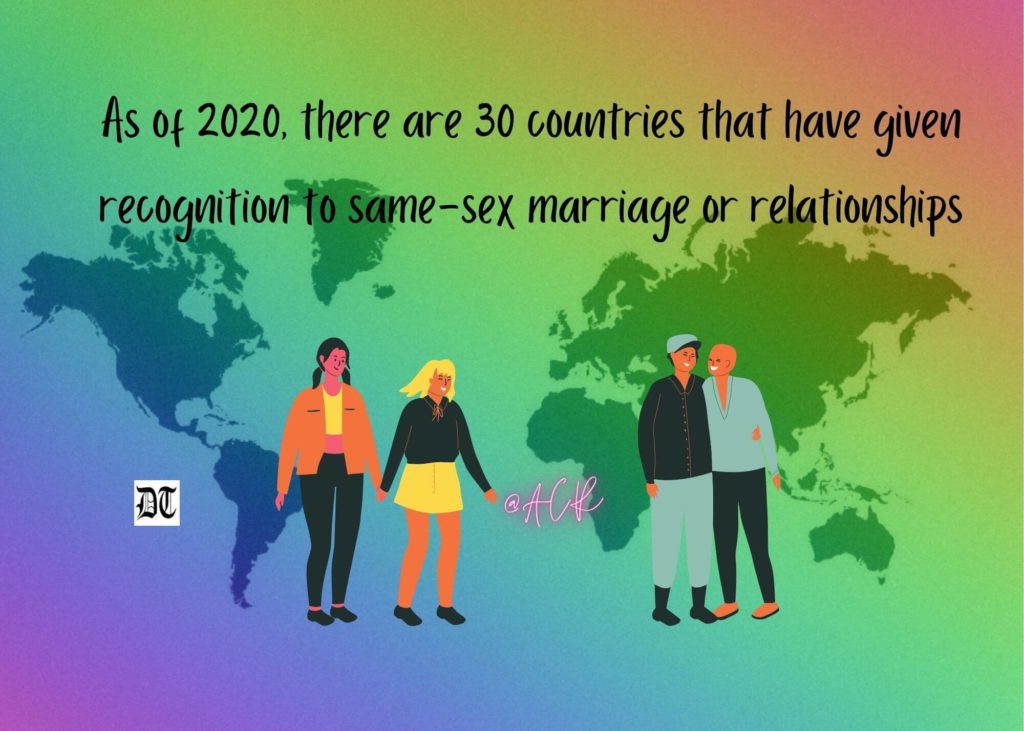
As of 2020, there are 30 countries that have given recognition to same-sex marriage or relationships. They are Argentina, Australia, Sweden, Taiwan, the United Kingdom, the United States, Austria, Belgium, Brazil, Canada, Colombia, Costa Rica, Germany, Iceland, Ireland, Denmark, Ecuador, Finland, France, Israel, Luxembourg, Malta, Mexico, the Netherlands, New Zealand, Norway, Portugal, South Africa, Spain, and Uruguay. Notably, the UNHRC passed a resolution for the appointment of ‘Independent Expert’ in 2016 to watch over the issues faced by the LGBTQIA+ community. James Baldwin in his novel Giovanni’s Room quotes an influential line about love, “Love him and let him love you. Do you think anything else under heaven really matters?”
However, there are 69 countries across the world that have given the death penalty or life imprisonment for same-sex marriages or relationships.
However, there are 69 countries across the world that have given the death penalty or life imprisonment for same-sex marriages or relationships. Some of them are as follows: Yemen, Sudan, Qatar, Iran, Iraq, United Arab Emirates, Brunei, Pakistan, Afghanistan, Somalia, Saudi Arabia, Egypt, Oman, Syria, Kuwait, Lebanon, Palestine, and so on. Although, there are few NGOs that help and support the LGBTQIA+ people of the Middle East. Like, Rainbow Streets which helps LGBTQIA+ individuals in the Middle East and North Africa with food security, providing local health beneficiaries, and providing regular cash stipends.
In 2018, the report by Human Rights Watch suggests that there is a high rate of discrimination against the LGBTQIA+ community in the Middle East, which includes hate crimes, criminalisation of same-sex relationships, ill-treatment, forced anal examinations, restriction on freedom of expression, lack of gender recognition to transgenders, rejected by family and society, and community stigma. Human Rights Watch, interviews 34 activists who are working on the rights of the LGBTQIA+ community.
Rima, a bisexual woman from Lebanon says, “Religious figures, the government, your parents—they all want to have a say in what you do between your legs. I want to tell you it’s none of their business and that your body, your desires, and your ideas are yours alone. If they don’t like what you are, they are wrong.”
If we observe the situation of India, the issues related to the LGBTQIA+ community are generally not been discussed in the public domain. It is still taboo for Indian society…
If we observe the situation of India, the issues related to the LGBTQIA+ community are generally not been discussed in the public domain. It is still taboo for the Indian society; the non-conforming genders are discriminated, victimised, ridiculed, and marginalised in the patriarchal structure of the society. Although the Supreme Court of India has passed judgments in favor of the LGBTQIA+ community to safeguard their rights, still they faced a high rate of discrimination and they were denied off self-identity, acceptance, equality, and justice.
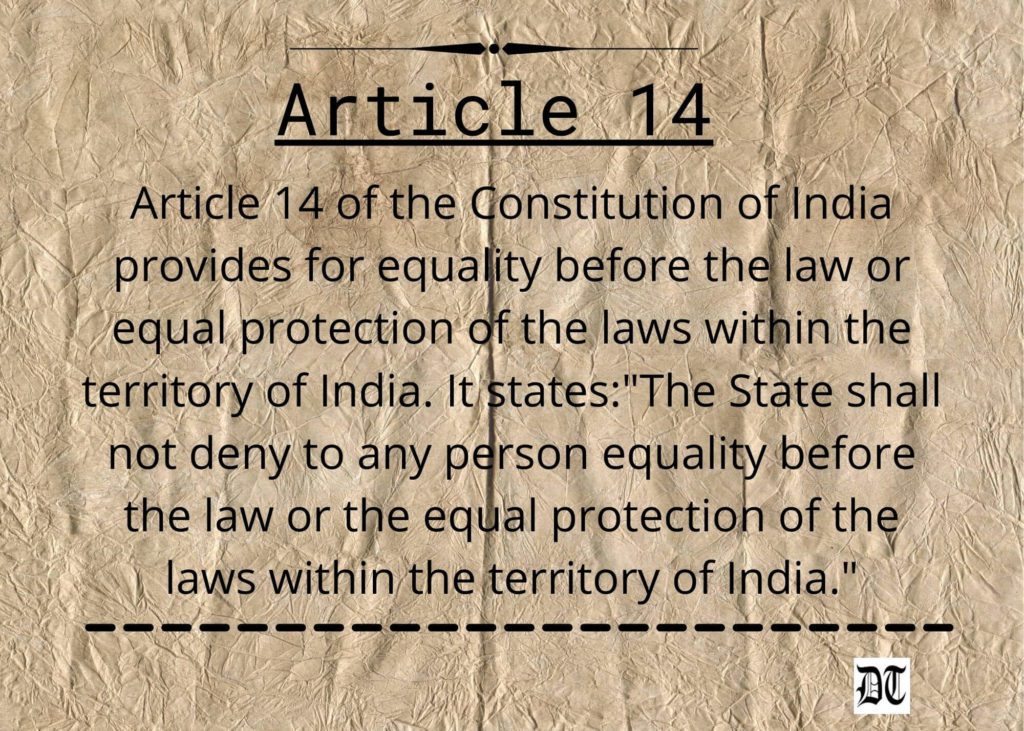
Article 14 of the Indian Constitution states equality before the law that includes all the sections of the society, including the LGBTQIA+ people.
Article 15 of the Indian Constitution prohibits discrimination on the basis of sex, gender, caste, religion, race, or place of birth. Also, Article 14 of the Indian Constitution states equality before the law that includes all the sections of the society, including the LGBTQIA+ people.
In April 2014, the Supreme Court of India declared transgenders as the ‘third gender’ in India. In recent times, the Transgender Persons (Protection of Rights) Act 2019 was passed by the government. This Act bans discrimination against transgenders in educational institutions and place of work, healthcare centers and they have the right to buy, own or rent any property. The Supreme Court of India passed the verdict in 2018 that considered Section 377 of the IPC as unconstitutional in respect to consensual homosexual acts between adults.
Visuals by Different Truths

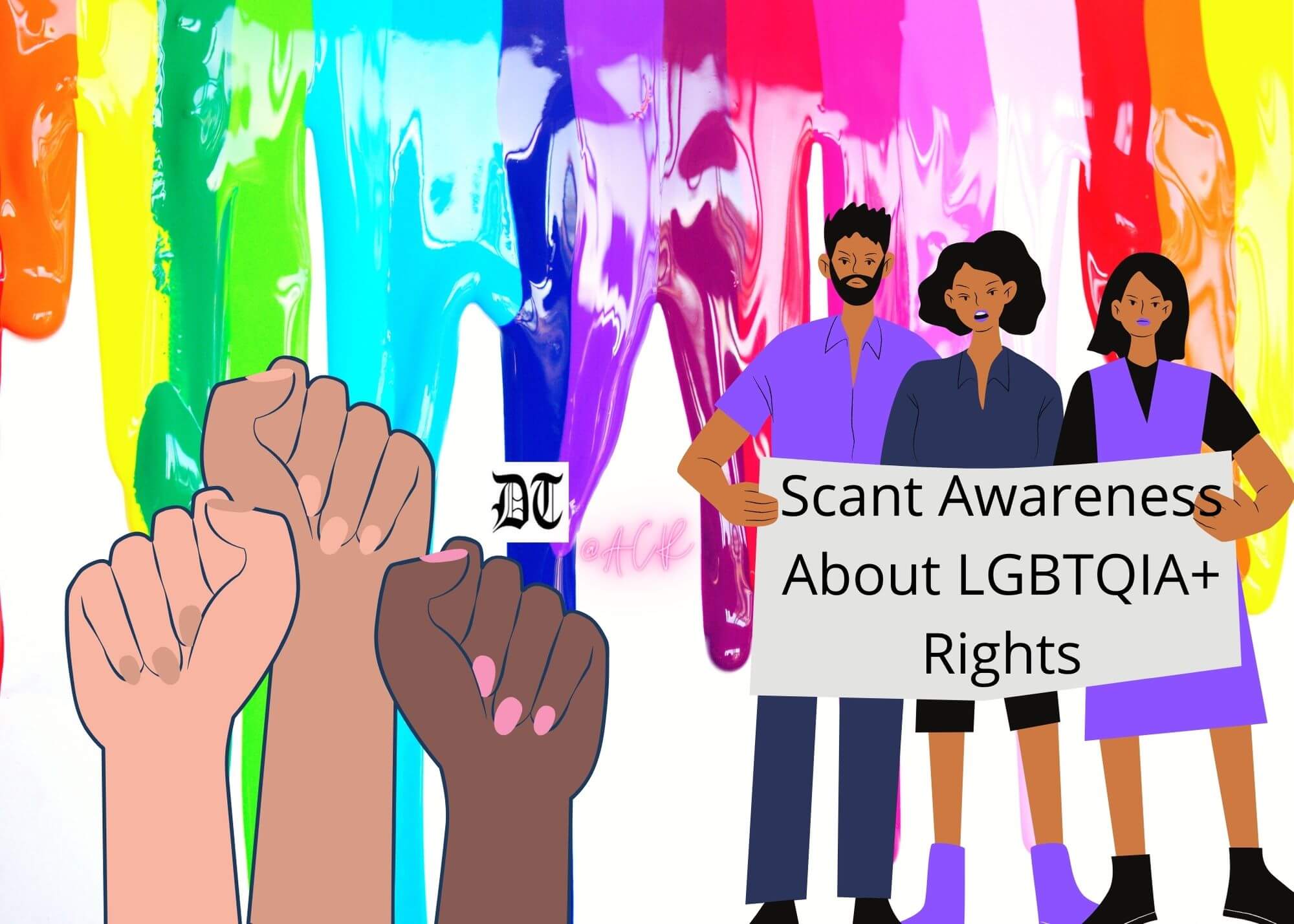
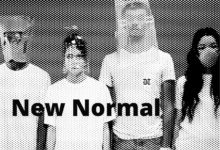
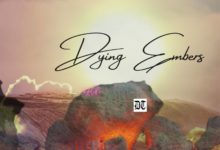

 By
By
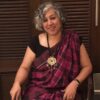 By
By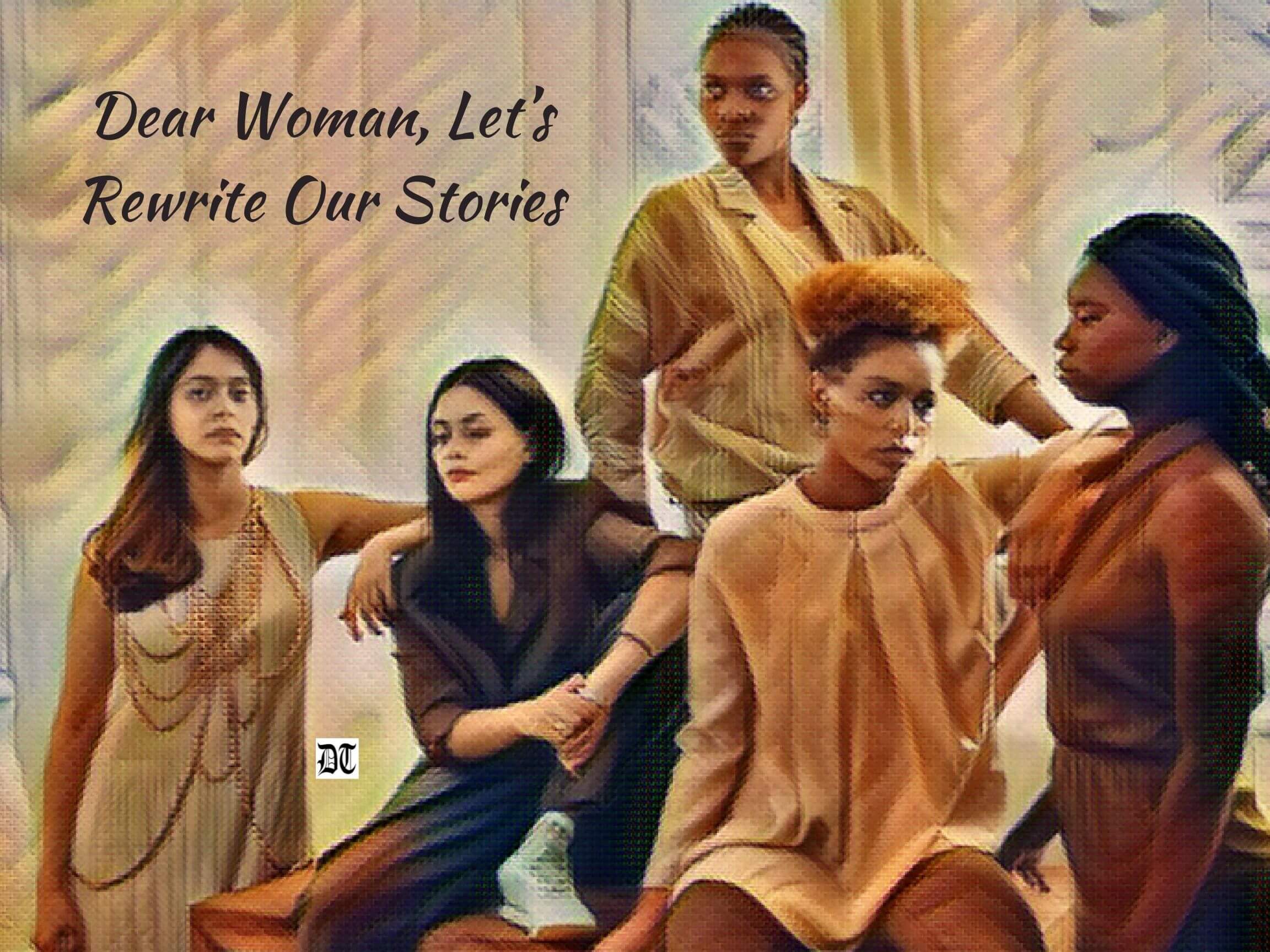
 By
By